Featured Student: Myles Osenton
March 13, 2025
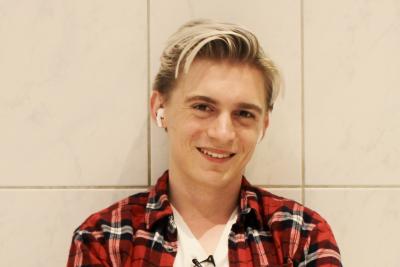
March 13, 2025

My field of study is Physics and I plan to graduate in May 2026.
The most important factor in choosing which field I want to pursue at university has always been what will my on-the-job daily work look like in the future, rather than my undergrad experiences when I'm sitting in a classroom.
This is not to discount the importance of academic courses, but it's the research that interests me. The Science Co-op program was the natural evolution of this — it's an opportunity for me to begin to discover what I want to do for my career.
During Co-op, I spent 8 months at the Fritz Haber Institute of the Max Planck Society in Berlin, Germany, and am currently in an 8-month position at the Advanced Science Research Center at the City University of New York.

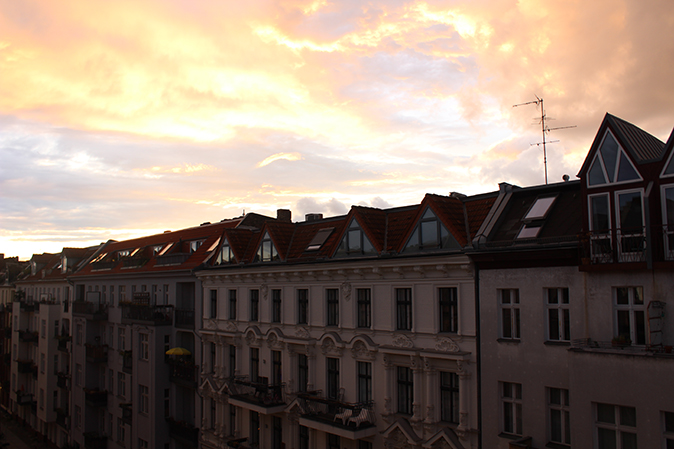
I've previously held 4-month positions at the UBC School of Biomedical Engineering and the University of Toronto.
Moving to a new country always has its unique challenges.
Figuring out how to get groceries, navigating the subway system, getting a phone number — these pose little difficulty in daily life, but when moving internationally, they can easily turn into full-day challenges.
Regardless, moving internationally is almost always a good decision. I've had the phenomenal opportunity to live in Beijing, Ottawa, Tokyo, Toronto and Vancouver, amongst others, which now includes Berlin and New York.
It's never easy trying to reassemble your daily life in a new place, but it's a fantastic learning experience, both about a new culture and yourself. After my international placement, I feel far more comfortable relocating independently and getting settled.
It's never easy trying to reassemble your daily life in a new place, but it's a fantastic learning experience, both about a new culture and yourself.
Past undergrad, there is much less of a rigid distinction between scientific fields and people from many disciplines work on similar projects regardless of their degree title. Interface science essentially puts a name to this - in my department of Molecular Physics, we had physicists, chemists, computer scientists, biochemists, chemical engineers and more. While everyone has their own specific skillset, working alongside a variety of specialties frankly makes the science better.
This was especially helpful for my experiment, infrared (IR) spectroscopy using ultracold helium nanodroplets. Using a free-electron laser (FEL), we would evaporate helium droplets surrounding ions, which let us take unique spectra of molecules with exceptionally low noise. As an optical physicist, I led the design and implementation of the optics required to transport and manipulate the beam from the free-electron laser into our interaction cavity where it evaporated helium.
Two experiences jump out immediately. The first was my trip to Nijmegen in the Netherlands near the beginning of my work term. We went to attend a week-long school to learn more about FELs. We also visited FELIX, another FEL that we collaborate with, and HFML, the High Field Magnetic Laboratory, known for levitating frogs a few years ago. It wasn't just work though - we had the opportunity to explore the city and have pancakes on a boat.
The second experience was spending a week in southern Germany at Schloss Ringberg, the castle owned by the Max Planck Society. We went there for our department's lab retreat, where we played games, discussed research and explored the castle.
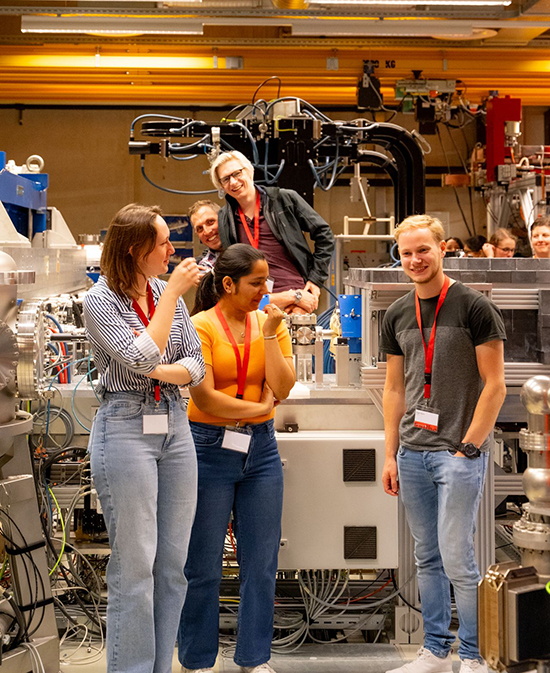
I published my first paper during my Co-op! It's about proton bonding at ultracold temperatures and can be found here:
https://pubs.rsc.org/en/Content/ArticleLanding/2024/CP/D4CP04058A
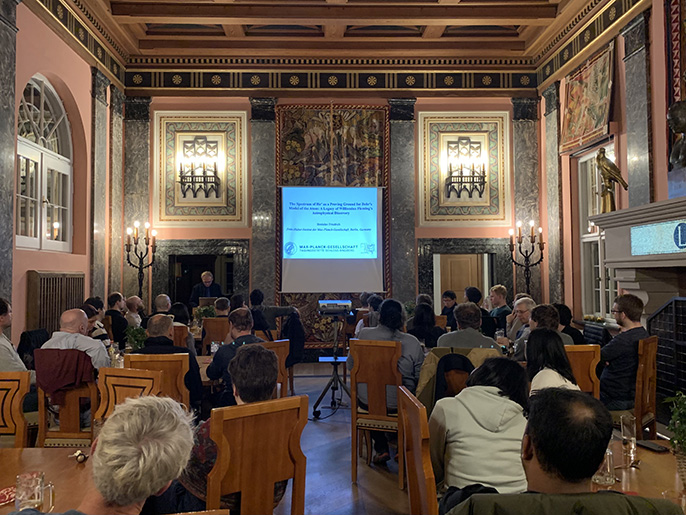
All of the logistics of moving are incredibly challenging.
There were plenty of daily issues that were important to address: figuring out what was needed for a visa, how to find proper insurance, navigating the bureaucracy of government and healthcare in another country, the list goes on and on.
My lack of decent German made this even more difficult. I found that it was important not to stress out or feel overwhelmed, but to ensure that I kept all deadlines organised and prepare all documentation as early as I could.
While I've lived in a few places overseas, this is the first time that I took the leap to live independently outside of Canada.
This may seem like a minor nuance, but it's a significant step that helped me find my own feet. Not only have I managed to adapt to these changes to my life, perhaps even as small as how to buy groceries, but I met fantastic people from all over the world during it.
I have greatly increased my own knowledge of how to experimentally use optics and how to apply them to other experiments outside of spectroscopy.
My time as a Co-op student in Germany allowed me to gain a better picture of the entire experimental design process, as I was largely responsible for the optics implementation, design and testing. I learned how to come up with new solutions, discuss experiments with other researchers, and then present my results understandably.
Co-op also gave me the opportunity to participate in other valuable aspects of academic work, including going to conferences, meeting other researchers and visiting scientific facilities. The ability to discuss research from different fields with scientists from all over the world has also been extraordinarily valuable, exposing me to groundbreaking research and techniques that I would not usually learn in the classroom.
Co-op also gave me the opportunity to participate in other valuable aspects of academic work, including going to conferences, meeting other researchers and visiting scientific facilities. The ability to discuss research from different fields with scientists from all over the world has also been extraordinarily valuable, exposing me to groundbreaking research and techniques that I would not usually learn in the classroom.
Having access to an international network of researchers through Co-op not only helped me in my professional career, but has made me a more mature and developed scientist, as well. In fact, I met my current Co-op supervisor, Dr. Andrea Alù, via colleagues in Germany!
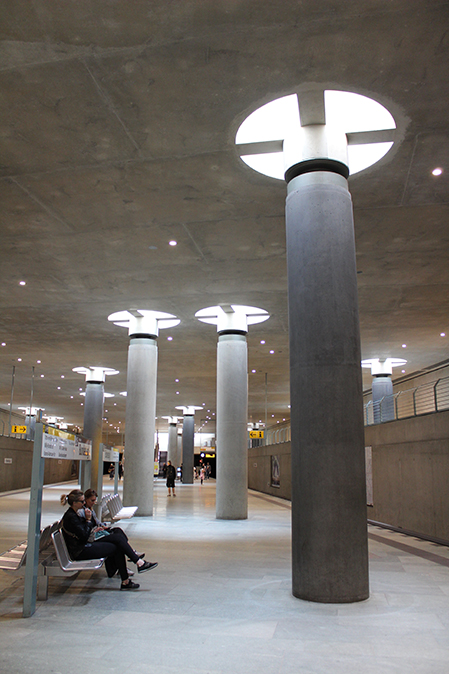
Countries don't make it particularly easy when moving internationally, especially if only temporarily. Having a support team to help with visa and insurance logistics has been incredibly helpful, making sure that I wasn't missing documents or deadlines.
If you have the opportunity for an international placement, take it.
The process of moving may be more demanding than staying in Vancouver, but it's worth it from an experience perspective alone.
Going to graduate school and continuing with my research!
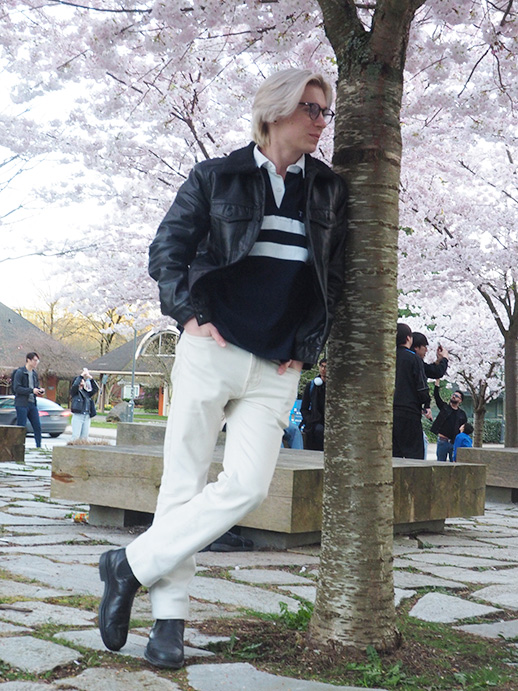
We honour xwməθkwəy̓ əm (Musqueam) on whose ancestral, unceded territory UBC Vancouver is situated. UBC Science is committed to building meaningful relationships with Indigenous peoples so we can advance Reconciliation and ensure traditional ways of knowing enrich our teaching and research.
Learn more: Musqueam First Nation